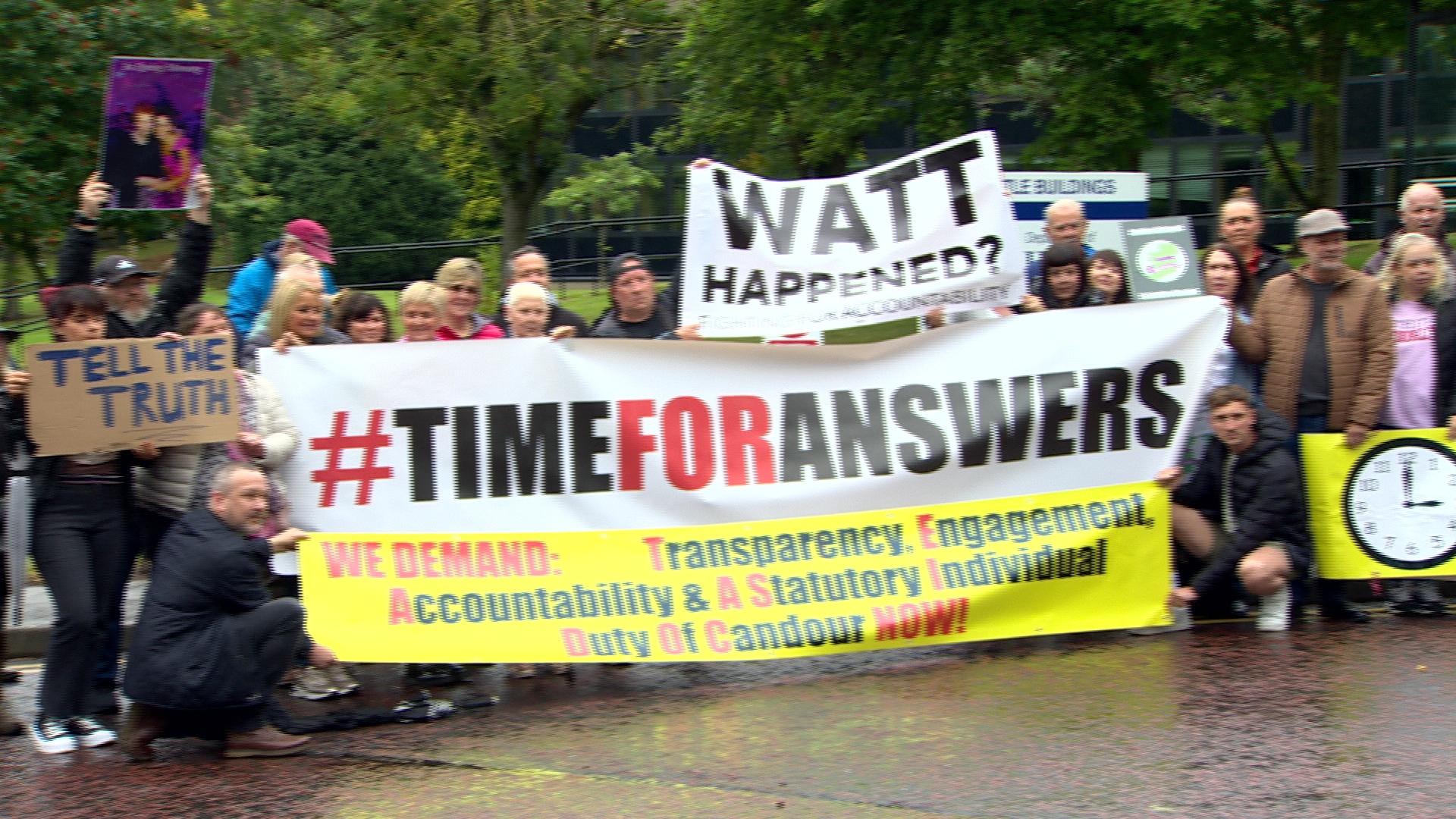Health minister aims to introduce duty of candour

- Published
Health Minister Mike Nesbitt has pledged to introduce an organisational duty of candour aimed at bringing more transparency to the workings of the Northern Ireland healthcare system.
Over the past two decades, several public inquiries have recommended the move after instances of cover-up or serious failings by medical staff.
A duty of candour is an onus on staff to be open and transparent with patients and families when mistakes are made in patient care.
Mr Nesbitt said Northern Ireland was the only part of the UK that did not have an organisational duty of candour.

Mike Nesbitt pledged to introduce the legislation before the next Stormont election
He said that if the NI legislative programme permitted, it was "my ambition that legislation will be introduced before the end of this mandate".
Mr Nesbitt was speaking at the Northern Ireland Assembly, in the wake of an Alliance Party motion that backed the need for a duty of candour in the healthcare system.
"It is a vital issue. It is one that must be addressed by my department, yes, but also by this assembly, and by the health and social care sector at large," he said.
"Any legislative change needs to be very clear, and that is to reduce patient harm, and support a culture where openness and honesty are at the centre of the services we provide."
He added: "In the vast majority of cases, openness and honesty, as well as a relentless commitment to patients and their safety, is evident in every ward and through every service in Northern Ireland."
The Alliance Party said that "while the overwhelming majority of staff are committed to the highest standards of care, a statutory duty of candour will play a vital role in identifying and addressing cases of abuse, negligence and failings in health and social care settings".
'Sheer frustration'
Alliance assembly member Paula Bradshaw said there was "sheer frustration" that seven years on from the Hyponatraemia Inquiry "we are no further forward".
The 14-year long inquiry examined the deaths of five children in Northern Ireland.
It was heavily critical of a health service it deemed to be "self-regulating and unmonitored".
The Alliance Party said its motion did not reference "criminal sanctions" as it believed further discussion needed to take place on that issue.
The British Medical Association (BMA) has said the concept of criminal sanctions is unworkable, adding that the Department of Health got it wrong when it linked sanctions with duty of candour in the same sentence in a 2021 consultation.
DUP assembly member Diane Dodds said it was difficult to see how a duty of candour could work in practice, given the level of risk that healthcare workers face on a daily basis.
She said modern medicine was highly complex, with a huge degree of risk and that not every procedure would have a successful outcome.
Her party colleague Paul Frew said that if the Department of Health did not introduce an individual duty of candour, he would bring a private members' bill to the assembly aimed at making it law.
Sinn Féin's Pat Sheehan said a duty of candour with criminal sanctions was not about punishing individual healthcare staff who make genuine mistakes, but was about "ensuring there is a culture of transparency" and tackling any "culture of cover-up".
SDLP MLA Colin McGrath told the assembly that there needs to be a culture change within the health system so that those who "witness failings feel that they can speak truth to power”.
However, he believes that the motion being debated "might inhibit that need for a change in culture".
“The process which the proposers are taking today, of an individual duty of candour, of organisational duty of candour, of criminal sanctions for all and then rolling them all in together, I feel, could just lead us to poor policy," he added.
- Published25 June 2024

- Published3 September 2022
